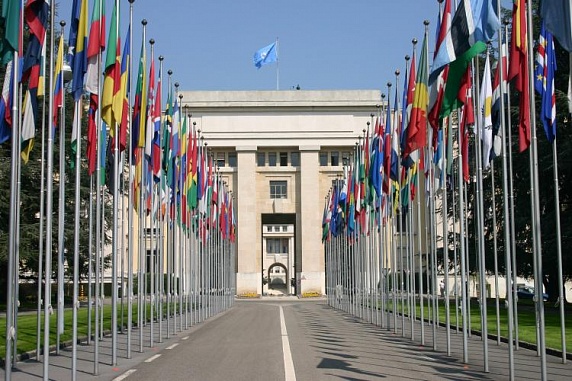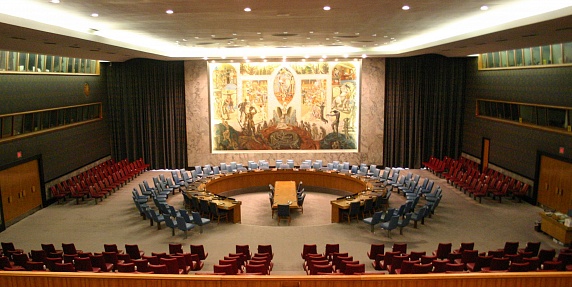 ONU
ONU
Statement by the Ministry of Foreign Affairs of the Russian Federation Concerning the 60th Anniversary of the Signing of the United Nations Charter
Unofficial translation from Russian
The United Nations Charter was signed on June 26, 1945, in San Francisco at the final session of the United Nations Conference on International Organization. The representatives of the delegations from 50 countries, including the USSR as one of the founding states, affixed their signatures to this document.
In its 60-year-long history the United Nations has acquired a truly universal character. Its current membership stands at 191 states. The purview of the UN encompasses a vast array of problems of concern to the world community. The representativeness of the UN invests it with indisputable legitimacy in questions of global politics, including economic cooperation, humanitarian issues, the maintenance of peace and security, and other matters. The UN, like no other interstate organization, possesses a unique ability to effectively combine efforts in the political sphere with activity in the social, economic, humanitarian and human rights fields. The UN also remains a generally recognized venue for forging international treaties. Thus, the International Convention on the Suppression of Acts of Nuclear Terrorism was at Russia's initiative signed recently and will be open for signature on September 14, 2005.
Thanks largely to the UN and peacekeeping operations established by its Security Council, the international community managed to settle dozens of conflicts, prevent the occurrence of new crises and make the world safer. At the present time, the UN continues playing its primary role in maintaining international peace and security.
The processes of globalization occurring in the world and their attendant new challenges and threats are creating qualitatively different conditions in which the fabric of an emergent multipolar world order is being made. Life dictates to states - big and small - the necessity to act together, to unite and closely coordinate efforts on interrelated issues in international politics. This cannot be done without agreeing on approaches, and the UN is an ideal place for bringing the positions of member states closer together.
But the UN can perform that function only inasmuch as its members allow it to do so. Hence, the call today is toward better UN instruments, more rational work of its main bodies and their ability to respond to contemporary problems flexibly and comprehensively. The main criterion for reform-driven changes in the UN should be a real enhancement of the effectiveness of its machinery, and the key condition of reform, the broadest possible agreement of member states with possible changes.
The upcoming Summit 2005 and 60th session of the UN General Assembly in New York in September are called upon to play an important role in enhancing the Organization's unique potential.
Russia as a UN Security Council permanent member and one of the founding states of this Organization will continue to assist this in every way.
June 25, 2005









